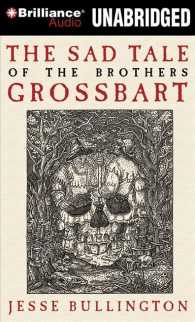Full Description
This book provides an analysis of the ways in which the BAC has established an ethical framework for biomedical research in Singapore, following the launch of the Biomedical Sciences Initiative by the Singapore Government. The editors and authors have an intimate knowledge of the working of the BAC, and the focus of the book includes the ways in which international forces have influenced the form and substance of bioethics in Singapore. Together, the authors offer a comparative account of the institutionalisation of biomedical research ethics in Singapore, considered in the wider context of international regulatory efforts. The book reviews the work of the BAC by placing it within the broader cultural, social and political discourses that have emerged in relation to the life sciences since the turn of the 21st century. This book is not primarily intended to be a retrospect or an appraisal of the contribution of the BAC, though this is one aspect of it. Rather, the main intention is to make a substantive contribution to the rapidly emerging field of bioethics. Ethical discussions in the book include consideration of stem cell research and cloning, genetics and research with human participants, and focus on likely future developments as well as the past.Many of the contributors of the book have been personally involved in this work, and hence they write with an authoritative first-hand knowledge that scholars in bioethics and public policy may appreciate. As indicated above, the book also explains the way in which ethics and science — international and local — have interacted in a policy setting. Scholars and policy makers may find the Singaporean experience to be a valuable resource, as the approach has been to make the ethical governance of research in Singapore consistent with international best practice while observing the requirements of a properly localised application of universally accepted principles. In addition, at least three chapters (the first three chapters in particular) are accessible to the lay reader interested in the development of bioethics and biomedical sciences, both inside and outside Singapore, from 2000 (the year in which the BAC was established). Both scholars and interested lay readers are therefore likely to find this publication a valuable reference.
Contents
The Coming of Bioethics to Singapore (W C Ho & S S N Lim); The Impact of the Bioethics Advisory Committee on the Research Community in Singapore (C Chan & E Liu); Engaging the Public: The Role of the Media (A-L Chang & J Tan); Confucian Trust and the Biomedical Regulatory Framework in Singapore (A T Nuyen); The Clinician Researcher: A Servant of Two Masters? (A V Campbell et al.); The US Model for Oversight of Human Stem Cell Research (L Parham & B Lo); Genetics and Stem Cell Research: Models of International Policy-Making (B Knoppers et al.); Public Engagement and Bioethics Commissions (T H Murray & R S White); Normmaking of Human-Animal Chimeras and Hybrids in Singapore, the United Kingdom and the International Domain (W C Ho & M Bobrow); How will Future Bioethical Issues Engage Singapore? (J M Elliott).







